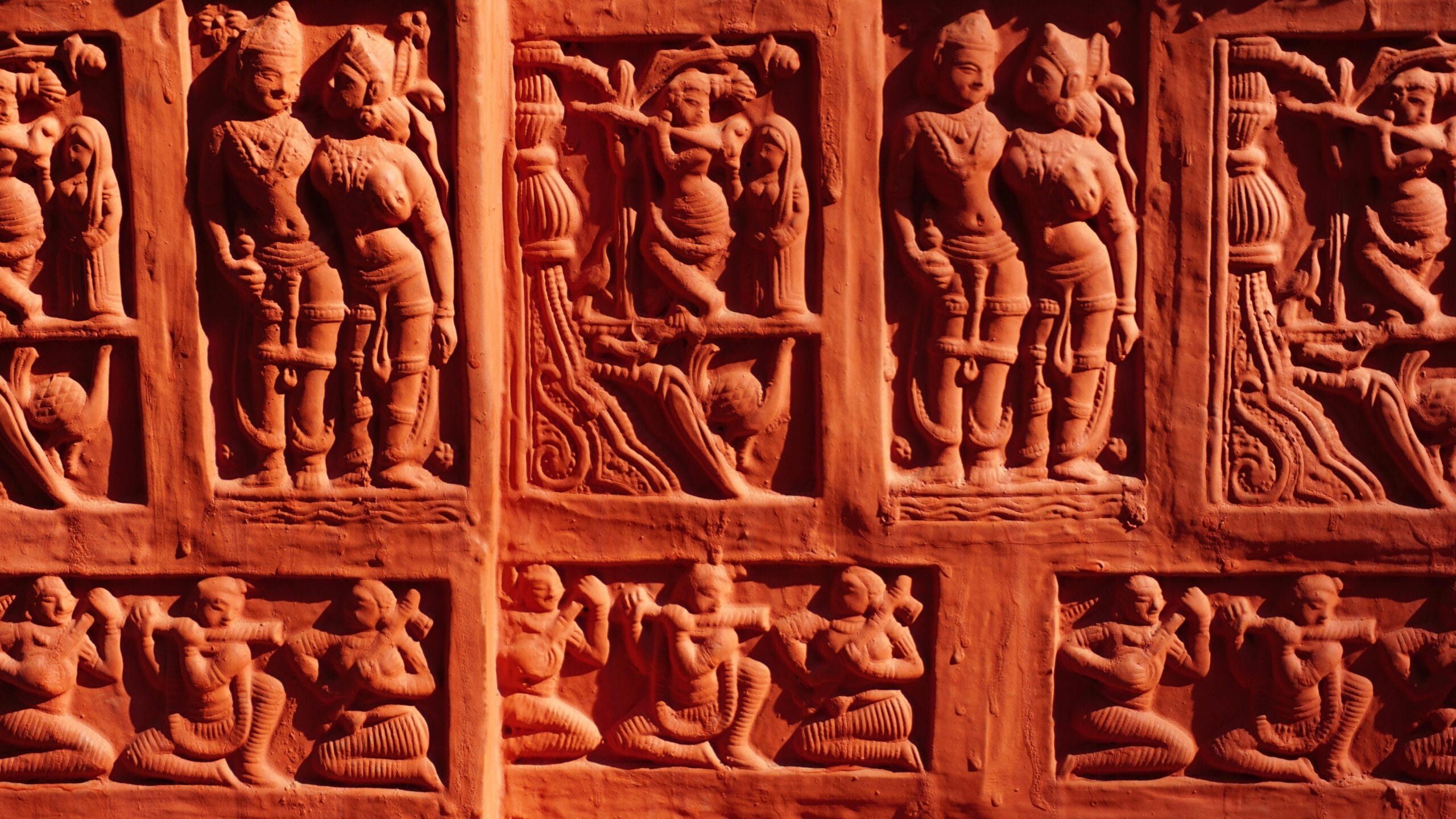Congratulations! India has its first Buddhist and second Dalit Chief Justice. Justice Gavai full name is Bhushan Ramkrishna Gavai, has been sworn in as the Chief Justice of India (CJI) of the Supreme Court. This pivotal moment raises critical questions: Can a Dalit CJI truly end judicial discrimination against Dalits? Will Justice Gavai’s tenure differ from that of upper-caste judges in matters concerning marginalized communities? And what impact will his leadership have on movements for social justice? Let’s explore these vital issues.
- Introduction
- Justice Gavai and the Dalit Bahujan Community
- Counter-Stereotypical Bias and Internalized Oppression
- Psychological Pressures and Social Conditioning
- Will Justice Gavai Be Influenced?
- Historical Significance
- Understanding Judicial Discrimination
- Strategies for Addressing Judicial Discrimination
- Moving Forward Towards Equality
- What Can You Do?
Introduction
The swearing-in ceremony was a significant event. The President of India, Droupadi Murmu, administered the oath of office and secrecy. Justice Gavai, a Dalit and a Buddhist, took the oath in front of an ancient statue of Buddha in the Durbar Hall of Rashtrapati Bhavan, two days after Buddha Purnima.
Justice Gavai was born in Amravati, Maharashtra, into a Dalit Buddhist family. His father, Ramkrishna Suryabhan Gavai, a prominent Dalit leader known as Dada Saheb, served as the Governor of Bihar. Justice Gavai will retire as CJI on November 23, 2025, after a term of six months and has pledged not to accept any position after retirement, reaffirming his commitment to the Constitution.
Justice Gavai is the second Dalit judge to become CJI, following K.G. Balakrishnan. The Dalit Bahujan community welcomed his appointment with joy, drawing inspiration from Dr. Ambedkar’s Constitution, which enables individuals born into marginalized castes to lead the highest court.
Justice Gavai and the Dalit Bahujan Community
Will Justice Gavai show empathy for the Dalit Bahujan community and actively address judicial discrimination? To understand this, we must examine his past judgments.
Sub-Classification and the Creamy Layer Concept
In the case of sub-classification within the SC/ST list, Justice Gavai’s judgment aligned with those of upper-caste judges. He emphasized the application of the ‘creamy layer’ to SC/ST reservations. On August 1, 2024, Justice Gavai asserted that states must identify the creamy layer within SC/ST categories and exclude them from affirmative action like reservations, arguing that this is essential for achieving true equality. Is excluding the ‘creamy layer’ like pruning a tree to encourage growth, or like cutting off essential branches?
On January 9, 2025, Justice Gavai stated that the decision to implement the creamy layer rested with the central government. He noted that after 75 years, individuals who have benefited from reservations and can compete with others should be excluded.
Concerns Surrounding the Creamy Layer
Dalit Bahujan thinkers hold diverse views on the creamy layer. Some fear it will eliminate reservations and lead to economic-based reservations, disadvantaging the Dalit Bahujan community. Justice Gavai’s statements have placed the onus on the central government.
Counter-Stereotypical Bias and Internalized Oppression
It’s often observed that female judges sometimes deliver more anti-woman judgments than their male counterparts, and Black judges may rule against Black individuals more often than White judges. Does this theory apply to Dalit judges as well? This can be attributed to counter-stereotypical bias or internalized oppression.
Understanding Internalized Oppression
Internalized oppression occurs when a marginalized individual internalizes negative perceptions imposed by society. For example, a female judge might believe that women are too emotional for serious decisions and make rulings accordingly. Is internalized oppression like a prisoner building their own prison walls?
Out-Group Derogation Explained
Out-group derogation, or in-group bias reversal, is a psychological state where a person adopts a harsher stance against their own community to appear impartial or more competent. A Dalit judge might rule strictly in cases involving their community to demonstrate a lack of bias.
The Impact of Stereotype Threat
Judges might fear that their impartiality will be questioned due to their background. To appear neutral, they may adopt a strict stance against their own group, driven by psychological factors like the pressure of representation and the need to prove oneself.
Psychological Pressures and Social Conditioning
Individuals from minority groups in high positions often feel pressured to avoid appearing biased. This can lead to the ‘proving oneself’ syndrome, where they make harsh decisions against their own community to demonstrate impartiality.
The Role of Social Conditioning
Social conditioning also plays a significant role. Individuals may internalize negative perceptions propagated by the majority, such as the idea that reservations harm merit. They might believe that reservations bring unqualified people into positions they don’t deserve.
Overcoming the Fear of Appearing Biased
The fear of appearing biased can drive this behavior. For instance, a Black judge might hesitate to grant bail to a Black defendant, fearing accusations of favoritism.
Will Justice Gavai Be Influenced?
Do you think these theories influence Justice Gavai, or will he face psychological pressures to avoid bias? It remains to be seen how he will treat the Dalit Bahujan community. Will he prioritise the welfare of marginalized groups, as mandated by the Constitution, and follow the path shown by Dr. Ambedkar and Buddha, embracing equality, fraternity, and justice? We must closely observe his future decisions. This is a significant question, but the real question is, can one person’s appointment really change deep rooted systemic issues?
Historical Significance
The appointment of Justice Gavai as CJI is a landmark event in Indian history. It reflects the progress made in achieving social justice and equality, thanks to the principles enshrined in the Constitution by Dr. B.R. Ambedkar. However, the challenges of caste discrimination and judicial bias persist.
The Importance of Quotes and References
Justice Gavai’s actions and decisions will be closely scrutinized to determine whether he upholds the values of equality and justice for all, particularly the marginalized sections of society. The reference to Dr. Ambedkar and Buddha underscores the importance of their teachings in guiding the pursuit of social justice.
Understanding Judicial Discrimination
Judicial discrimination refers to biased or unfair treatment within the legal system based on a person’s caste, race, gender, religion, or other protected characteristics. This manifests in various forms, including:
The Impact of Biased Judgments
Judges may exhibit prejudice in their rulings, leading to unequal outcomes for different groups.
Addressing Unequal Access to Justice
Marginalized communities often face barriers to accessing legal representation and fair treatment in courts.
Combating Discriminatory Laws and Policies
Legal systems may perpetuate discrimination through laws and policies that disproportionately affect certain groups.
Strategies for Addressing Judicial Discrimination
Several measures can be taken to address judicial discrimination and promote equality within the legal system:
Promoting Judicial Diversity
Increasing the representation of marginalized groups in the judiciary helps ensure diverse perspectives and reduce bias.
The Value of Judicial Training
Providing judges with training on cultural sensitivity, implicit bias, and anti-discrimination laws raises awareness and promotes fair decision-making.
Ensuring Legal Aid and Representation
Ensuring access to legal aid and representation for marginalized communities levels the playing field and protects their rights.
Moving Forward Towards Equality
The appointment of Justice Gavai as CJI represents a significant step forward in promoting social justice and equality in India. Therefore, it is essential to remain vigilant and address the systemic issues that perpetuate judicial discrimination. By promoting diversity, providing training, and ensuring access to justice, we can create a legal system that is fair and equitable for all.
What Can You Do?
You can stay informed, engage in discussions, and advocate for policies that promote equality and justice. Furthermore, support organizations working to combat discrimination and empower marginalized communities. Together, we can build a more just and equitable society. Take action today by educating yourself on the issues, supporting relevant organizations, and advocating for change within your community. Your voice matters in the fight against judicial discrimination and for a more equitable India.
Disclaimer:
Dalit: A member of the lowest caste in India.
Bahujan: A term referring to the majority population in India, including Dalits, OBCs, and other marginalized groups.
CJI: Chief Justice of India, the highest-ranking judge in the Supreme Court.
SC/ST: Scheduled Castes and Scheduled Tribes, groups recognized by the Indian Constitution as historically disadvantaged.
Creamy Layer: A term used to describe members of SC/ST communities who have achieved a certain level of economic and social advancement and are therefore considered ineligible for reservation benefits.
Internalized Oppression: The process by which members of marginalized groups internalize and accept negative stereotypes and beliefs about themselves.
Out-Group Derogation: The tendency to view members of other groups negatively.
Read More about SC ST Reservation and common misconceptions.
Find out more about why EWS is a scam.
Read more about the problems with Creamy Layer in SC ST Reservation.
Watch the original video here.

